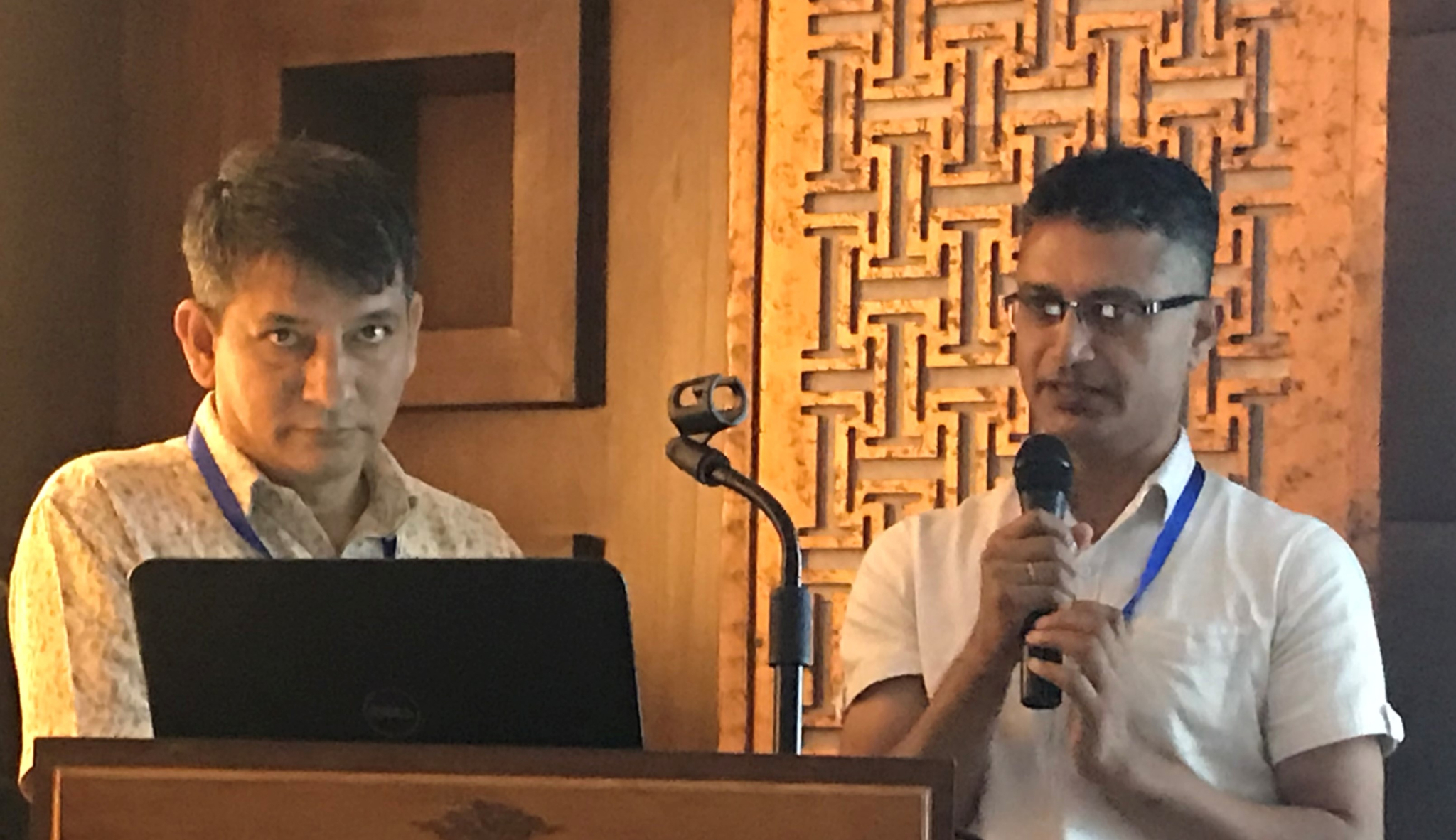The Organisation
The program is run by the Karuna Foundation Nepal. This foundation has a Nepali board, consisting of prominent leaders and doctors from the country. This board oversees an enthusiastic team of 90 people in Nepal, led by two very committed Nepali directors, Deepak Sapkota and Yogendra Giri. Karuna Foundation Nepal has a central office in Kathmandu and a provincial office in Itahari (Koshi Province). The district offices in Phase 1 have been taken out. In DPRP 2.0 one staff member of the provincial team becomes responsible for the good implementation of DPRP in two municipalities.
KarunaNL
To support the activities of the Karuna Foundation, a foundation with ANBI status has been established in the Netherlands under the name KarunaNL. The funding from all funding partners is coordinated and sent from KarunaNL Foundation via UBS Optimus Foundation to Nepal. UBS-OF adds 10% to each funding to Nepal. KarunaNL Foundation looks after the interests of the Dutch donors by supervising the responsible spending of their donations and good reporting. Till 2024, this foundation also recruited new donors. During the implementation of DPRP phase 1, agreements have been made between Karuna Nepal and KarunaNL about regular reports on content and financial matters and about adequate control, about which the Dutch donors are subsequently informed. For this complex project, a good balance between control and efficiency was found. Karuna NL saw its role, not only as controlling but also supporting the directors Deepak and Yogendra with challenging questions like approaches for nationwide scaling, sharing knowledge and experience via a learning center, new partnerships with NGOs like UNICEF, and other matters. In phase 1 of DPRP, we worked with a tri-annual reporting system (following the Nepali government system) and funding requests from Nepal.
With the start of DPRP2.0, we decided to amend our partnership and leave more responsibility to Karuna Foundation Nepal. The board of KarunaNL envisions shifting more responsibility to Karuna Nepal in DPRP 2.0. Detailed financial statements will then not be needed, nor four months’ progress reports at a detailed level. The emphasis will be on an annual lump-sum-like form of support and on reporting on a limited number of milestones. Moreover, it is our wish to have our Nepalese counterpart, the board of Karuna Nepal, play a greater role.
Karuna Foundation Nepal will also become responsible for the fundraising of €800.000.
The partner organizations in Nepal are the provincial government and all 128 municipalities (10 in Ilam, 58+1 in DPRP phase 1, and 59 in DPRP 2.0). In addition, Karuna Foundation Nepal started a collaboration with local NGOs for 1) complementary care and 2) support in collaboration with the government and further scale-up. The first group includes organizations such as Smile Train Nepal (harelip surgery), Biratnagar Eye Hospital, Global Fund for Children with Hearing Loss, Center for Autism, Koshi Nepal for psychosocial counseling, Nick Simons Institute and Fairmed. A first partner working together in further scaling up the program is UNICEF Nepal.
The provincial government has designated the Ministry of Social Development to implement the CBR program, while the prevention components are run by the Ministry of Health. They have set up a Steering Committee, established guidelines for implementation, agreed on funding modalities, and selected the municipalities to start each year. The Steering Committee manages the implementation of the program, advises the Ministry of Economy and Planning on budget allocation, develops the Health Management Information System (H-MIS), and ensures that funds are transferred on time. In doing so, they mobilize local leaders and health institutions to work well together.
Municipalities are responsible for the implementation and success of DPRP. The elected mayors play an important role in this. Municipalities determine the quality of care, hire and manage CBR facilitators, and manage the local finances of the program. After two and a half years, they continue the program with their funds, when the support from Karuna stops.
The board of KarunaNL envisions shifting more responsibility to Karuna Nepal in DPRP 2.0. Detailed financial statements will then not be needed, nor four months’ progress reports at a detailed level. The emphasis will be on an annual lump-sum-like form of support and on reporting on a limited number of key indicators. Moreover, it is our wish to have our Nepalese counterpart, the board of Karuna Nepal, play a greater role.

